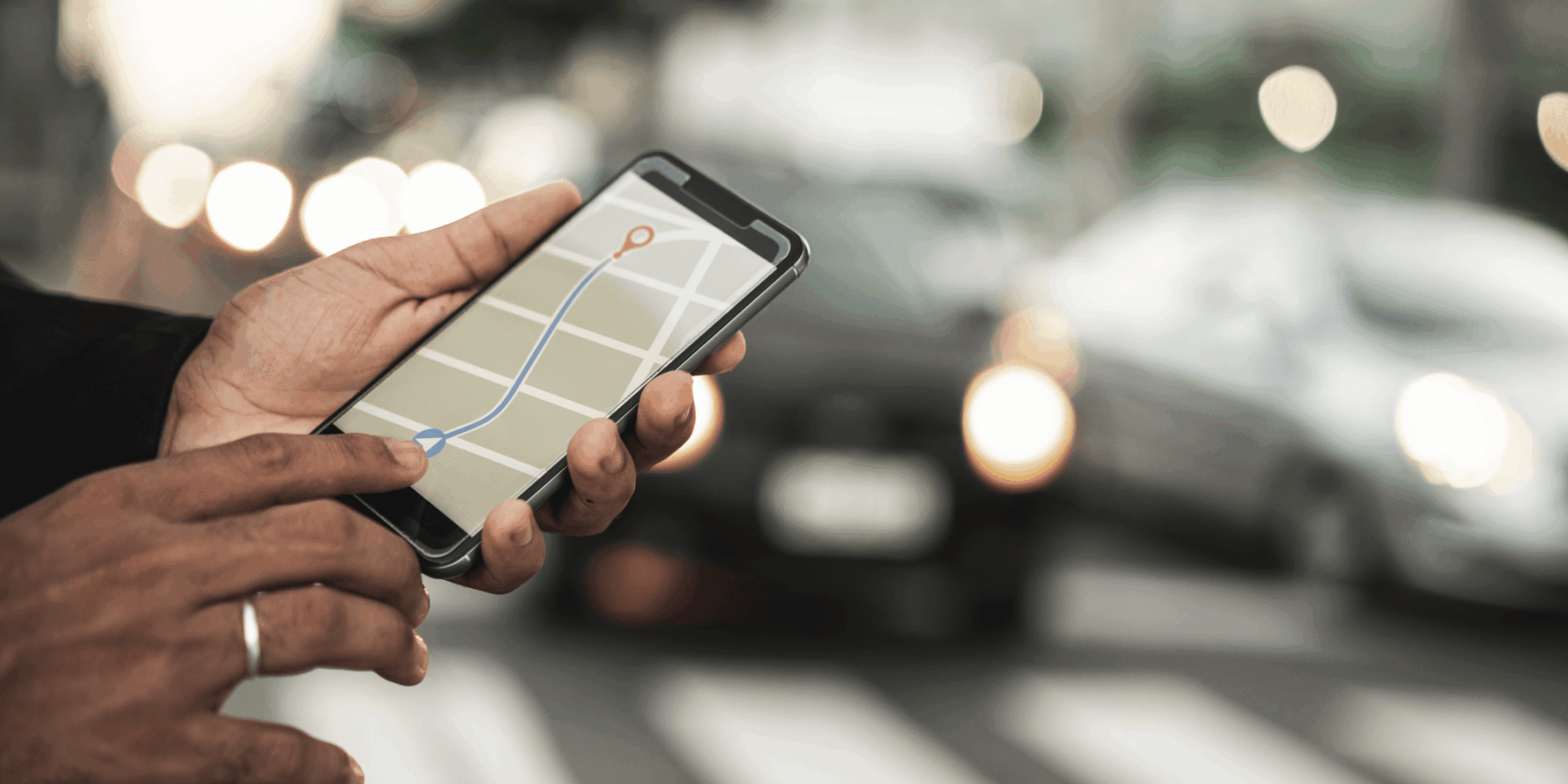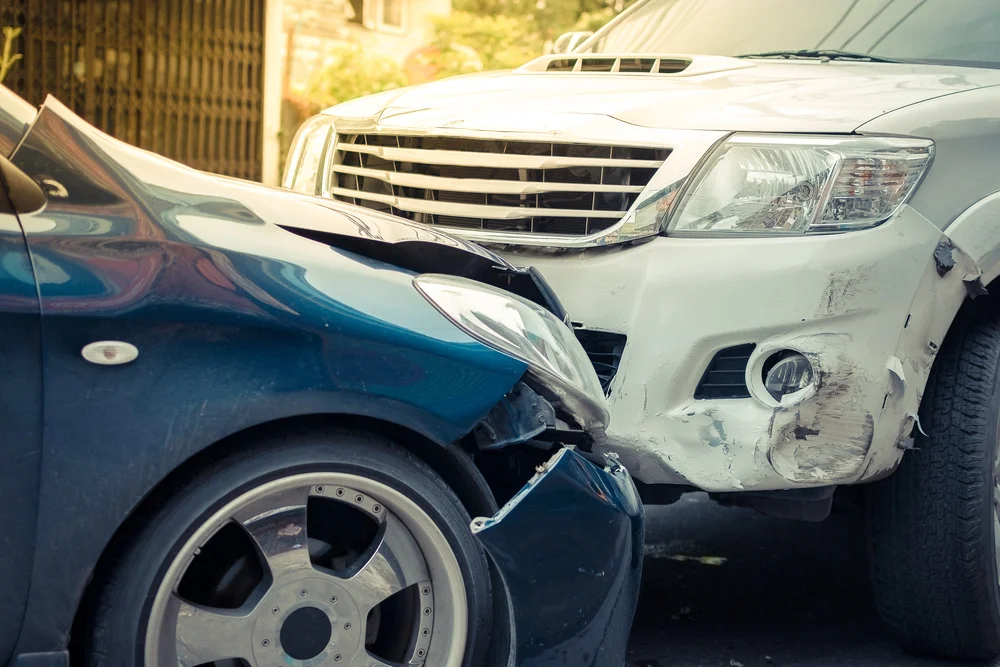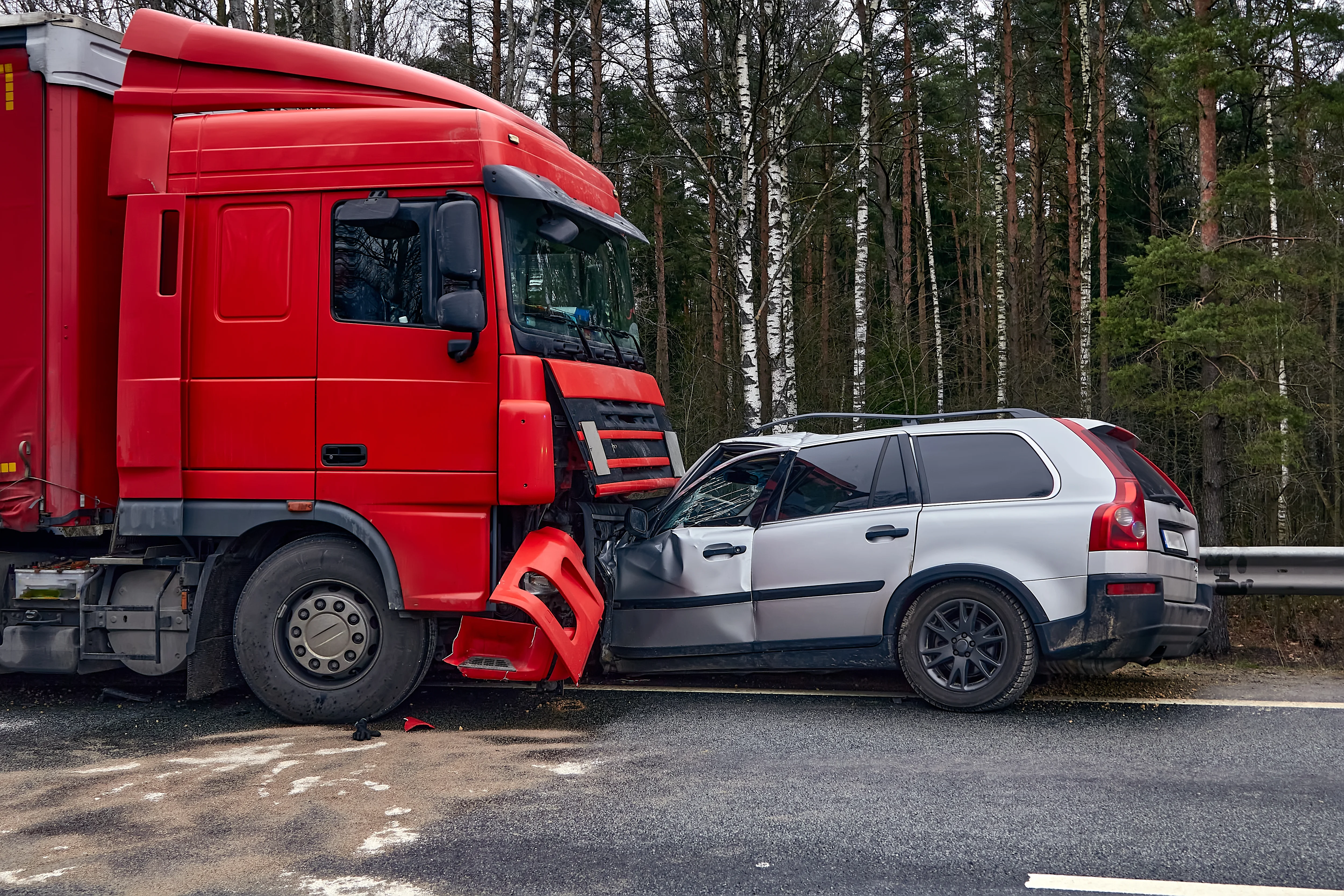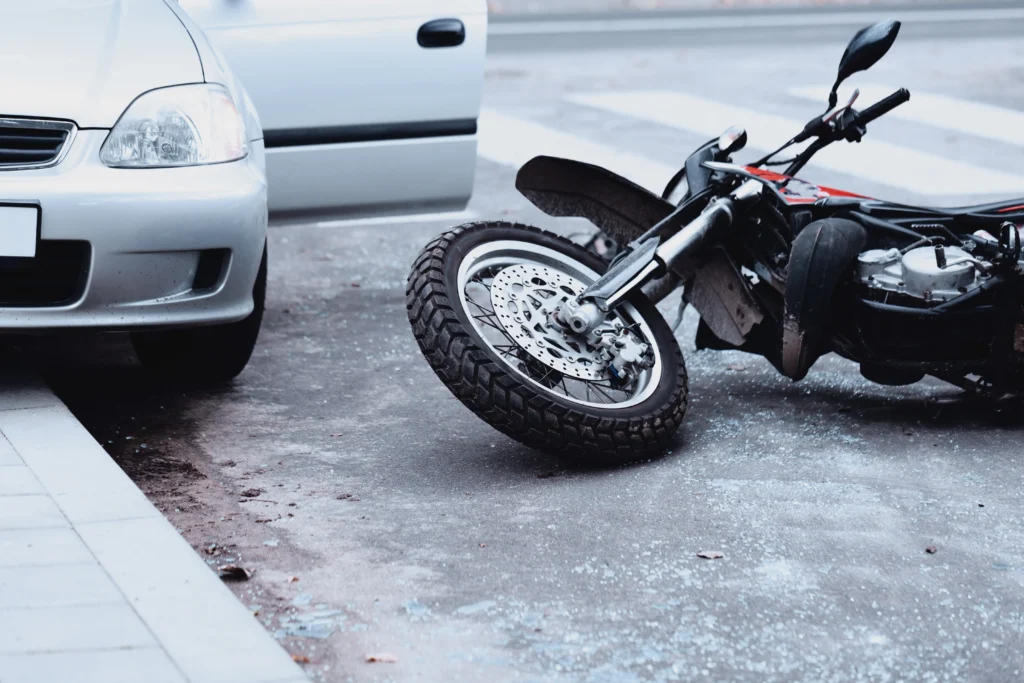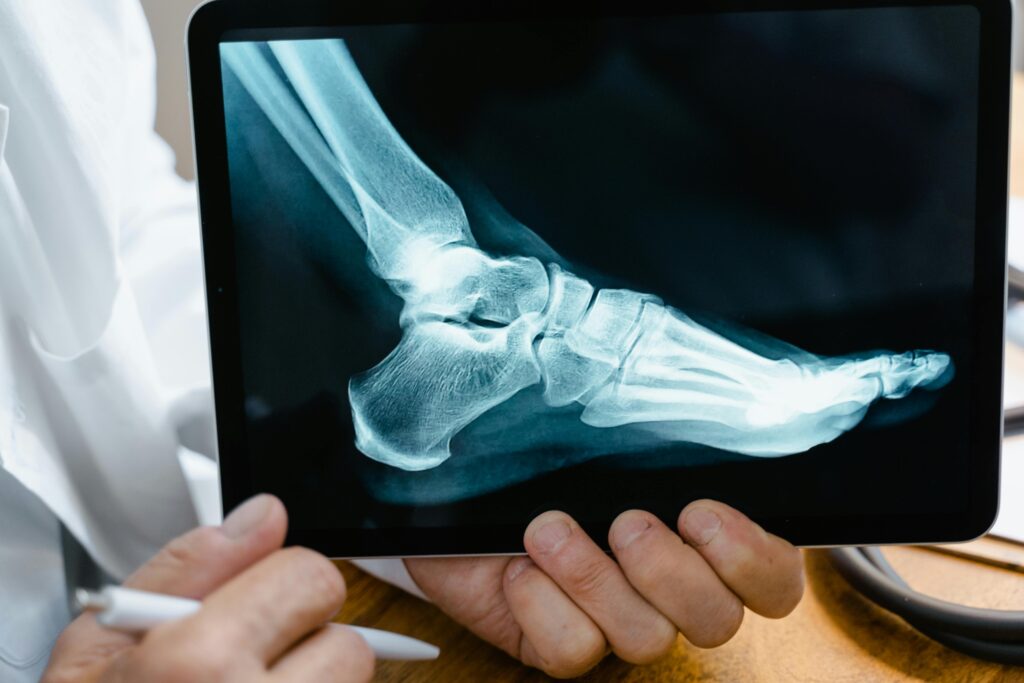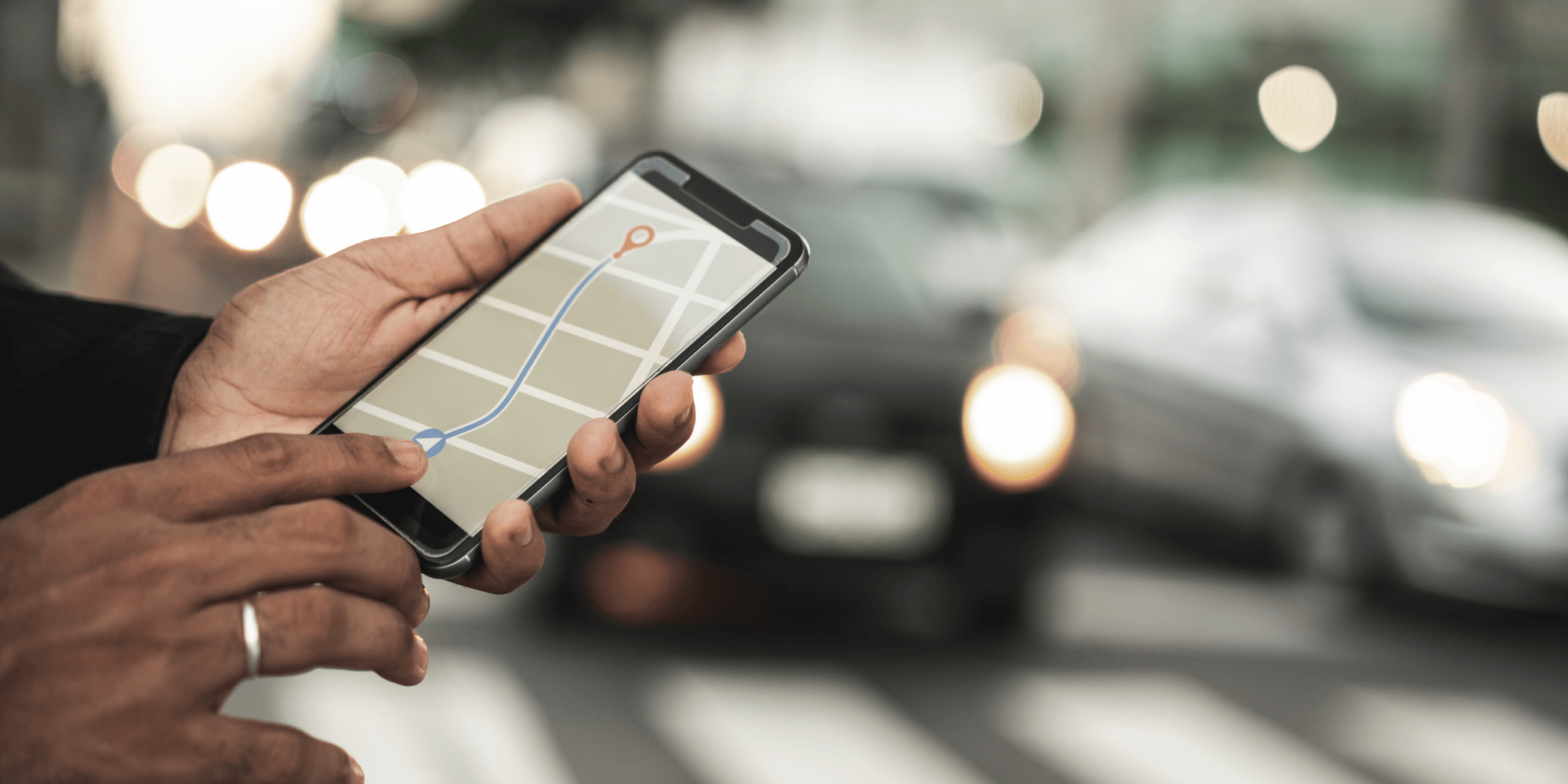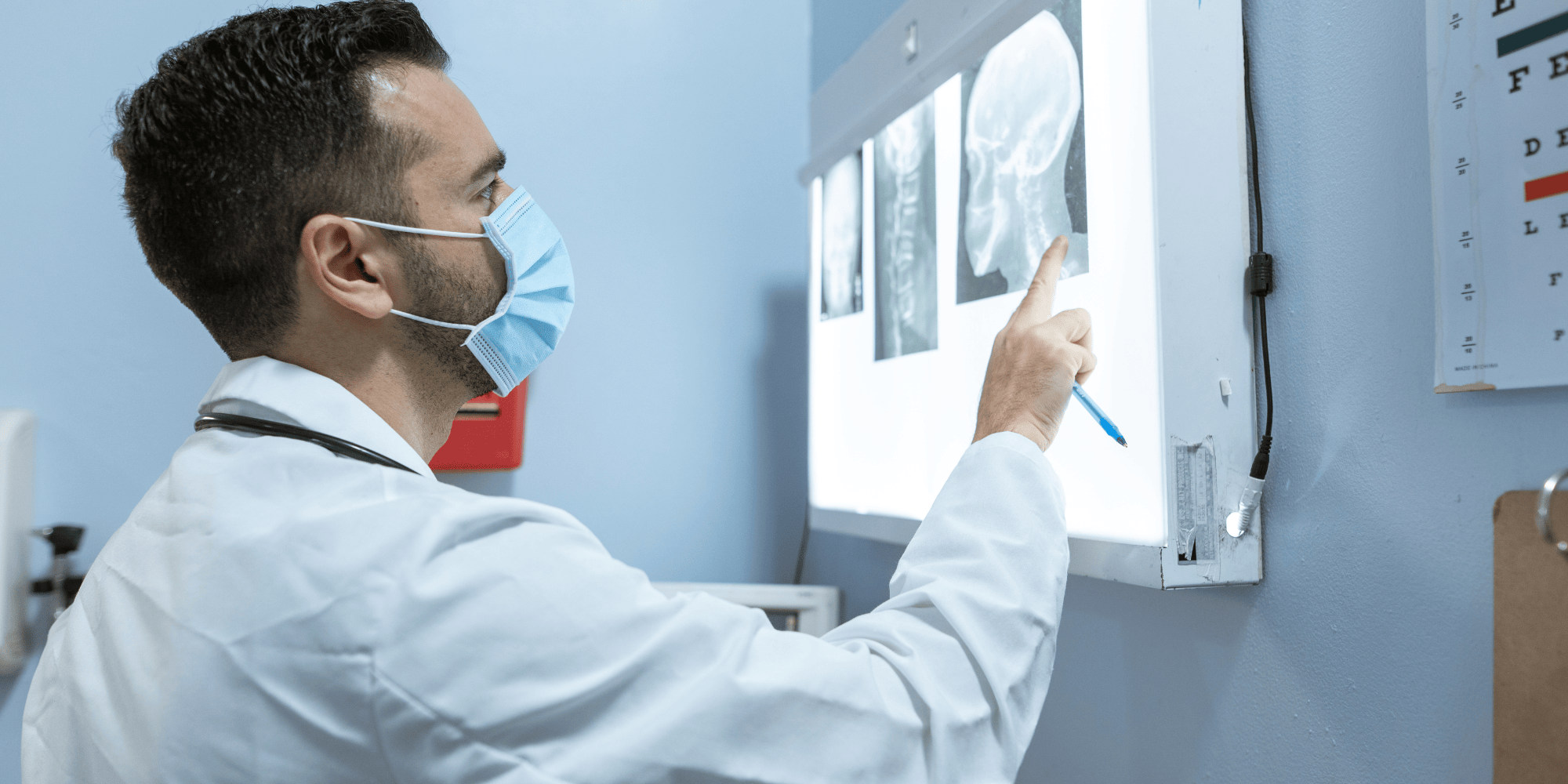Levine Law Denver Rideshare Attorneys Are Ready to Help After an Accident
Denver’s growing reliance on rideshare firms like Uber and Lyft has transformed how locals and visitors move about the city. From the busy LoDo neighborhood to the traffic-clogged roads circling Ball Arena, rideshare vehicles are everywhere. With additional rideshare traffic, though, comes more serious accidents. According to a study published by the University of Chicago Booth School of Business, there is a substantial link between greater use of rideshare firms and a rise in traffic fatalities nationwide.
At Levine Law, we represent Denver rideshare accident victims vigorously and with precision. Whether you were another driver, a pedestrian, or a passenger, we understand the unique legal complexities of these cases. Rideshare companies often deny liability, and their insurers immediately set out to protect profits. We act immediately to secure app data, witness statements, and any other evidence that exists before it disappears.
Our firm has recovered over $2 billion for injury victims across Colorado. We’ve helped thousands of clients hold negligent drivers and corporations accountable. If your accident happened near Union Station, Colfax Avenue, or the bustling Cherry Creek corridor, we’re ready to fight for you.
Don’t try to pick up the pieces of a Lyft or Uber wreck alone. Get a team that knows Denver, knows the law, and knows how to win. Call Levine Law today for your free consultation.
Common Causes of Uber and Lyft Accidents in Denver’s High-Traffic Corridors
Rideshare crashes are increasingly common throughout the Denver metro area. From congested morning commutes on I-25 to late-night pickups near Colfax Avenue, the risk of serious accidents rises as more Uber and Lyft drivers compete for fares. These incidents are often the result of hurried decisions, distracted driving, and poorly planned traffic maneuvers. According to the National Highway Traffic Safety Administration, behaviors like distraction, speeding, and fatigue are leading factors in urban vehicle collisions.
Understanding the common triggers behind Denver rideshare accidents helps us pinpoint liability, gather evidence, and strengthen your case. At Levine Law, we investigate every crash with local knowledge and an aggressive commitment to protecting our clients’ rights.
Rideshare Distraction Leads to Dangerous Intersections in Central Denver
Distracted driving plays a major role in many Uber and Lyft crashes across the Mile High City. Rideshare drivers often switch between navigation apps, trip assignments, and messaging platforms while in motion. This creates an incredibly unsafe environment for passengers, pedestrians, and other drivers alike.
Rideshare distraction is especially problematic in high-traffic areas like Broadway and Colfax Avenue or the intersections around Auraria Campus. Even a momentary lapse in attention can result in a rear-end collision or a pedestrian being struck in a crosswalk. These crashes frequently occur near RTD light rail stations, where traffic patterns shift rapidly.
How Phones and Apps Contribute to Rideshare Crashes
Uber and Lyft require drivers to accept, start, and end trips using their smartphones. This necessity forces drivers to handle their phones constantly, increasing the risk of distraction.
Unlike commercial drivers with integrated navigation systems, many rideshare drivers use personal phones mounted on dashboards or held in hand. The result is delayed reaction times and poor decision-making in high-risk areas like Speer Boulevard or the South Broadway corridor.
Speeding to Boost Earnings in Busy Denver Districts
Surge pricing encourages rideshare drivers to complete more trips in less time. This results in speeding through downtown streets and neighborhood roads, particularly during concerts, festivals, and sporting events.
Drivers trying to maximize earnings may ignore posted limits or accelerate through yellow lights to squeeze in extra rides. According to the Colorado Department of Transportation, speeding contributes to one-third of all traffic fatalities in the state. In a densely packed city like Denver, that figure becomes even more alarming.
Speed-Related Crashes Around LoDo and the Highlands
Neighborhoods like Lower Downtown (LoDo), Capitol Hill, and the Highlands are some of the city’s most active zones for nightlife and dining. As rideshare demand increases in these areas, so does the temptation for drivers to rush.
Speed-related crashes often happen when rideshare drivers turn quickly onto one-way streets, run red lights, or brake too late in stop-and-go traffic. Victims of these accidents frequently suffer whiplash, head injuries, and broken bones due to the high impact.
Unsafe Pickups and Drop-Offs Near Denver Hotspots
Rideshare companies have revolutionized transportation, but they’ve also created chaos at pickup and drop-off points. When drivers stop in bike lanes, active traffic lanes, or at unmarked curbs, they place everyone at risk. These sudden stops cause collisions with other vehicles or force passengers to exit in dangerous locations.
Common problem areas include Union Station, Denver International Airport, and major event venues like Empower Field. Even neighborhood intersections near Tennyson Street or South Pearl Street see regular complaints about illegal stops disrupting traffic flow.
Red Zones, No-Stop Zones, and Traffic Lane Violations
Denver has clear ordinances regulating where rideshare pickups can occur. Unfortunately, many drivers disregard these rules to shorten wait times or avoid ticketed loading zones.
When drivers stop in prohibited areas, they not only violate city traffic laws but also increase the risk of sideswipes and T-bone collisions. At Levine Law, we investigate these reckless stops, gather surveillance footage when available, and hold negligent parties accountable.
Fatigue Among Rideshare Drivers on Denver’s Outer Highways
Many Uber and Lyft drivers work long hours or drive late at night to maximize their income. This results in fatigue that impairs focus, delays reaction times, and elevates crash risks. Drivers may fall asleep at the wheel or miss vital traffic signals entirely.
Late-night fatigue-related accidents often occur on I-70, I-76, and C-470 as drivers shuttle passengers to and from the suburbs or Denver International Airport. These high-speed corridors are especially dangerous when reaction times are compromised.
The Risks of Overnight Driving in Colorado’s Rideshare Industry
Drivers who log shifts past midnight or early morning hours are more likely to suffer from reduced alertness. Many also work other full-time jobs before getting behind the wheel for rideshare services, increasing the risk of burnout and inattention.
According to the Centers for Disease Control and Prevention, drowsy driving is responsible for thousands of crashes annually. In Denver, the combination of high-speed freeways and sleep-deprived drivers makes rideshare fatigue a serious threat to public safety.
Why Rideshare Accidents in Denver Are More Legally Complex Than Other Crashes
Rideshare collisions are not your typical car accidents. When an Uber or Lyft crash occurs in Denver, multiple layers of insurance and liability issues immediately come into play. Unlike standard car accidents, these cases involve large corporations, contract drivers, and constantly changing app statuses that determine who is financially responsible. According to the National Association of Insurance Commissioners, these factors make rideshare accidents among the most complicated personal injury cases to resolve.
At Levine Law, we untangle these legal knots from the beginning. We identify which coverage applies, pursue all liable parties, and demand accountability. Our experience with Denver rideshare crash claims allows us to move quickly while protecting our clients’ rights every step of the way.
Understanding How App Status Changes Insurance Liability
One of the most confusing aspects of rideshare claims involves the driver’s app status at the time of the crash. This detail controls which insurance policy applies and how much coverage is available to the injured party.
Rideshare drivers are considered independent contractors, not employees. Because of this, Uber and Lyft only provide full coverage in certain situations. If a driver is logged out of the app, the company’s insurance offers no protection. But once the app is turned on, partial coverage may kick in.
The Three Coverage Periods That Affect Your Claim
There are three distinct coverage scenarios in any Denver rideshare crash:
App Off
If the rideshare driver is not using the app at all, only their personal insurance applies. This often includes minimal coverage and can leave injured parties undercompensated.
App On But No Passenger
When the driver is waiting for a ride request, Uber and Lyft provide limited liability coverage. This includes up to $50,000 per person for bodily injury and $25,000 for property damage. However, these amounts may not be enough in serious accidents.
Passenger Accepted or Onboard
Once a ride is accepted or a passenger is in the vehicle, the full $1 million liability coverage from the rideshare company applies. This higher limit offers better protection but often leads to aggressive defense strategies by corporate lawyers and insurers.
These distinctions are crucial. Insurance companies will look for any reason to downgrade coverage. That is why we launch an immediate investigation to secure app usage records and determine exactly when the crash occurred.
Why Corporate Insurance Companies Fight Rideshare Claims
Uber and Lyft have teams of lawyers and insurance adjusters working to reduce payouts after every accident. Their goal is to protect company profits by denying responsibility or shifting blame. In Denver, this often means delays, lowball settlement offers, or complete denials of valid claims.
According to a recent Georgetown Law analysis, rideshare insurers are specifically trained to challenge liability even in clear-cut cases. They often argue that drivers were not properly logged into the app or that third parties caused the crash.
How We Push Back Against Denials and Delays
At Levine Law, we prepare every case as if it will go to trial. From the beginning, we collect the digital evidence needed to prove the driver’s app status and the company’s financial responsibility. This includes:
- Trip history screenshots
- Timestamped ride data
- GPS tracking logs
- Communications between the driver and the company
When insurers try to avoid their obligations, we use this data to challenge their tactics. Our team demands transparency, and we do not back down when corporations fail to honor their policies.
Why Rideshare Accident Laws Require Local Legal Knowledge
Colorado law does not treat rideshare accidents the same as other types of collisions. In fact, state statutes continue to evolve as the rideshare industry expands. That means understanding local case law, city transportation ordinances, and regulatory updates is critical for building a winning claim.
For example, the Colorado Public Utilities Commission regulates transportation network companies and sets minimum insurance requirements for drivers. However, enforcement can be inconsistent, and violations are not always easy to uncover.
Denver’s Local Rules Affect Where and How Rideshare Cases Are Filed
Denver also has specific rules that impact how and where accident claims are handled. Depending on whether the driver or company violated local pickup laws or traffic regulations, claims may involve municipal fines, civil penalties, or added liability.
This is especially relevant for accidents that occur near city-designated zones like Denver International Airport or Union Station, where strict loading and unloading rules apply. When a driver fails to follow these rules and causes a crash, it may strengthen your claim.
How Levine Law Builds Strong Cases Against Rideshare Giants in Denver
Standing up to rideshare companies like Uber and Lyft requires more than just filing paperwork. These billion-dollar corporations have teams of attorneys trained to minimize payouts and deny responsibility. At Levine Law, we level the playing field by launching aggressive investigations, securing hard evidence, and applying Denver-specific legal strategies from day one. According to the American Bar Association, well-documented cases that use digital data and expert-supported claims result in significantly stronger outcomes for plaintiffs.
We prepare every rideshare injury case in Denver as if it will go to trial. This mindset allows us to move quickly, keep the pressure on corporate insurers, and recover maximum compensation for our clients.
We Move Fast to Preserve Key Digital Evidence from Uber and Lyft
Time-sensitive evidence is critical in every Denver rideshare accident claim. Drivers’ trip logs, app data, and GPS records can all disappear if not secured quickly. That is why our legal team immediately sends legal preservation letters and subpoenas to prevent the loss or deletion of essential records.
Uber and Lyft store vital trip information such as driver status, exact pickup times, route history, and communication logs. This digital trail can prove fault, show whether the driver was speeding, and confirm whether they were officially working for the company at the time of the crash.
Securing App-Based Data Before It Vanishes
Rideshare platforms do not preserve data forever. In many cases, companies purge records after a short period unless legally compelled to retain them. Our team works quickly to identify and request:
- Timestamped trip activity
- GPS location logs
- Passenger-driver communication history
- Status changes before and after the collision
This information often determines whether the full $1 million liability policy applies. Without it, insurers may try to avoid paying full compensation. By acting fast, we secure the evidence needed to hold all parties accountable.
We Collaborate With Local Medical Providers Across Denver
Accurate medical documentation strengthens every personal injury claim. At Levine Law, we work directly with trauma centers, orthopedic doctors, neurologists, and physical therapists throughout the Denver metro area. This network includes leading providers near Rose Medical Center, UCHealth University of Colorado Hospital, and Denver Health.
When clients seek medical attention immediately after a rideshare crash, they not only protect their health but also create strong records that support their injury claims. We ensure your treatment records clearly reflect how the crash impacted your daily life and long-term recovery.
How Proper Medical Records Influence Case Value
Insurance companies often attempt to minimize injuries by arguing that symptoms are unrelated or exaggerated. Well-organized medical documentation helps shut these arguments down.
We ensure that each record includes:
- Diagnosed conditions linked directly to the crash
- Diagnostic imaging (MRI, CT scans, X-rays)
- Treatment plans and recovery projections
- Medical opinions connecting injuries to the rideshare collision
These details allow us to calculate future medical needs and present a full picture of your financial losses.
We Reconstruct Denver Rideshare Accidents With Precision
To prove liability, we often work with skilled accident reconstruction professionals who analyze physical evidence from the crash. These investigations uncover how the crash occurred, the speed of impact, and whether the rideshare driver violated traffic laws. This is especially useful in complex crashes near freeway on-ramps, airport exits, and downtown intersections.
In neighborhoods like RiNo, Five Points, and Capitol Hill, rideshare drivers often make sudden stops, unsafe turns, or cut across lanes without signaling. Using traffic cam footage, crash scene photos, and vehicle damage analysis, we reconstruct what happened and who is responsible.
Building Visual Evidence That Insurance Companies Cannot Ignore
Visual evidence is one of the most persuasive tools during negotiations or trial. We often use:
- Crash animations showing how the impact occurred
- Diagrams of intersection angles and stoplight positions
- Vehicle speed estimates based on skid marks and impact points
This level of detail demonstrates fault clearly and convincingly. It also helps increase settlement value by removing ambiguity from the case.
We Anticipate Defense Tactics and Discredit Insurance Company Strategies
Uber and Lyft routinely claim their drivers are independent and not employees. They use this defense to argue the company holds no legal responsibility. We prepare every case to confront these arguments head-on by using their own policies and trip data to prove their accountability.
According to an analysis from the Economic Policy Institute, rideshare drivers operate under strict control by companies, which supports liability claims when passengers or third parties are injured.
Challenging Denials with Corporate Policy Violations
When we review Uber or Lyft’s own internal guidelines, we often uncover violations that strengthen our case. For example:
- Drivers ignoring company safety protocols
- Failure to suspend drivers after prior complaints
- Inadequate background checks or driver screening
We use these findings to demand policy enforcement and full compensation from all parties involved.
Frequently Asked Questions About Denver Rideshare Accident Claims
When you are involved in a rideshare crash with an Uber or Lyft vehicle in Denver, you will likely have many questions. These collisions often lead to confusing insurance rules, uncertain liability, and legal red tape that most injury victims are not prepared to handle alone. At Levine Law, we answer these questions every day. Our goal is to give you clear and direct guidance so you can focus on your recovery while we fight for your compensation.
Below are some of the most common questions we receive from rideshare accident victims across the Denver metro area. These answers are based on our years of legal experience and the specific challenges that come with Colorado’s evolving rideshare laws.
How Much Time Do I Have To File A Rideshare Injury Claim In Colorado
Under Colorado law, you have three years from the date of a motor vehicle accident to file a personal injury claim. This includes Uber and Lyft crashes that occur anywhere in the Denver area. However, the sooner you act, the better your chances of preserving critical evidence and securing fair compensation.
If a government vehicle or agency is involved in the crash, your window to file may shrink to just 180 days. Always speak with an attorney right away to confirm your deadlines and start the investigation before evidence disappears.
Can I Sue Uber Or Lyft Directly After A Crash In Denver
In most cases, you cannot sue Uber or Lyft directly unless the company was grossly negligent. These companies classify their drivers as independent contractors rather than employees. That classification makes it more difficult to hold them legally responsible through traditional lawsuits.
However, if you are injured while the driver was active on the app and transporting a rider, Uber or Lyft’s $1 million insurance policy usually applies. Our legal team works to hold these companies financially accountable by proving that the driver was acting within the scope of the rideshare platform at the time of the collision.
What Should I Do Immediately After A Rideshare Crash In Denver
Your health and safety come first. Always call 911 and seek medical attention, even if you feel okay. Injuries like concussions, soft tissue trauma, or internal damage may not appear right away.
Next, take photos of the vehicles, road conditions, and any visible injuries. Collect contact information from the driver, other passengers, and any witnesses nearby. Do not make any recorded statements to insurance adjusters before speaking to an attorney. At Levine Law, we can begin investigating the crash as soon as you contact us.
Who Pays For My Medical Bills After A Rideshare Accident
Payment for medical bills depends on several factors, including who was at fault and what coverage applies. If the Uber or Lyft driver was responsible and logged into the app, their commercial insurance policy may cover your expenses.
If the driver was not logged in, their personal insurance applies. If another driver caused the crash, we pursue a claim against that individual’s policy. In some cases, your own uninsured or underinsured motorist coverage can help with costs. We review all available insurance policies and coordinate benefits so you do not pay out of pocket unnecessarily.
What Happens If The Rideshare Driver Was Not Logged Into The App
When a rideshare driver is not logged into the Uber or Lyft app, they are considered off-duty. In these situations, the company’s insurance does not apply. Instead, the driver’s personal auto insurance becomes the primary coverage source.
Unfortunately, many personal policies have low liability limits or may exclude coverage for commercial activity. That is why it is important to investigate all possible avenues of compensation, especially if your injuries are serious.
Can I Recover Compensation If I Was A Pedestrian Hit By A Rideshare Vehicle
Yes, pedestrians struck by Uber or Lyft drivers can recover compensation. The key factor is whether the rideshare driver was working at the time of the crash. If the app was on or the driver had a passenger, the company’s higher liability coverage usually applies.
Pedestrian crashes often occur near Union Station, downtown crosswalks, or crowded pickup zones. These cases require immediate investigation and strong legal representation to secure surveillance footage, witness statements, and digital records before they are lost.
How Much Does It Cost To Hire A Denver Rideshare Attorney
At Levine Law, we work on a contingency fee basis. That means you pay nothing up front and no legal fees unless we win your case. This arrangement allows every injured person in Denver access to quality legal representation regardless of income.
We offer free consultations to review your case, answer your questions, and explain your legal options without pressure or obligation. If you choose us, we cover all the costs of building your case and only get paid when you receive compensation.
Speak With a Denver Rideshare Accident Lawyer Today and Take the First Step Toward Justice
If you were injured in an Uber or Lyft crash anywhere in the Denver metro area, now is the time to take action. Whether the collision happened near Colfax Avenue, the Tech Center, or the busy airport corridor, your case deserves immediate attention and aggressive legal support. At Levine Law, we fight to hold rideshare companies and negligent drivers accountable while protecting your rights every step of the way.
From the moment you contact our office, we begin investigating your crash, preserving digital evidence, coordinating medical care, and preparing your claim for maximum financial recovery. Our team has helped thousands of injured victims recover compensation for medical bills, lost income, and long-term pain. We bring that same determination to every Denver rideshare case we handle.
You do not have to navigate confusing insurance policies or corporate roadblocks alone. With Levine Law on your side, you get a proven legal team that knows Colorado’s rideshare laws, understands Denver’s traffic patterns, and refuses to back down from powerful opponents.
We offer free consultations and handle every case on a contingency fee basis. You pay nothing unless we win. Call us now or fill out our online contact form to speak directly with a Denver rideshare accident attorney who is ready to fight for your recovery.
Practice Areas
Trust Levine LawWith Your Personal Injury Claim
If you or a loved one have been injured, Levine Law will fight for you every step of the way. We will give our all to secure the compensation you rightfully deserve.
Contact usfor a free consultation.
Phone: (303) 951-4810
